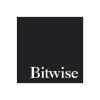 Spot Bitcoin ETF expected by just 39% of financial advisors this year: Bitwise survey
Spot Bitcoin ETF expected by just 39% of financial advisors this year: Bitwise survey Spot Bitcoin ETF expected by just 39% of financial advisors this year: Bitwise survey
Other analysts and research firms predict a 90% chance of approval in January.

Cover art/illustration via CryptoSlate. Image includes combined content which may include AI-generated content.
Bitwise reported on Jan. 4 that surveyed financial advisors largely do not expect a spot Bitcoin exchange-traded fund (ETF) to be approved this year.
The company’s results suggest that most do not believe the U.S. Securities and Exchange Commission (SEC) will soon approve such a fund. It wrote:
“In a surprising development, only 39% of advisors [of the 437 surveyed] believe a spot bitcoin ETF will be approved in 2024. By contrast, Bloomberg ETF analysts peg the likelihood of a January approval at 90%.”
Low expectations among financial advisors appear to be due to pessimism about the approval process rather than a critical attitude to crypto, as Bitwise’s survey also found that most advisors see the approval of a spot Bitcoin ETF as a “major catalyst.” Bitwise said that 88% of advisors who are interested in purchasing Bitcoin are waiting until a spot Bitcoin ETF is approved to purchase it.
Furthermore, Bitwise found high commitment to cryptocurrency among financial advisors. It said that 98% of advisors who have an allocation to crypto in client accounts either intend to keep that exposure steady or increase exposure in 2024.
Bitwise also wrote that access is a “major barrier to adoption,” noting that only 19% of advisors are able to buy crypto in client accounts. Spot Bitcoin ETFs are expected to appeal to traditional and institutional investors and remove those barriers.
Bloomberg analysts comment on approval odds
The most notable finding is financial advisors’ low approval expectations. James Seyffart, one Bloomberg ETF analyst responsible for a higher 90% prediction, called the finding “very surprising … particularly with all the added media coverage.”
Eric Balchunas, another Bloomberg ETF analyst, implied that Bitwise’s finding might be related to the age of those working as financial advisors. He suggested that “boomer advisors are not spending inordinate [amounts] of time on Twitter or even online,” where ETF optimism seems to be widespread. The idea that financial advisors skew older is supported by findings from data analytics firm J.D. Power, which indicate that the average financial advisor is 57 years old.
Bloomberg analysts’ 90% odds have gained traction outside of Bitwise’s pessimistic findings, as industry members such as Mike Novogratz and research firms like K33 Research have backed that higher prediction.
Most spot Bitcoin ETF developments have been positive, with extensive engagement from the SEC, frequent amendments from applicants in order to satisfy requirements, and applications from world-class asset managers like BlackRock and Fidelity.
One exception to this widespread optimism is a contrarian report from Matrixport on Jan. 3, which predicted that spot Bitcoin ETFs will be rejected due to SEC chair Gary Gensler’s hostility towards cryptocurrency and due to the largely Democratic politics of SEC commissioners.
Regardless of whether the SEC chooses to approve a spot Bitcoin ETF, it must decide on Ark Invest’s spot Bitcoin ETF by Jan. 10. Bitwise itself also has a spot Bitcoin ETF pending that could be potentially approved at that time.



















































































































